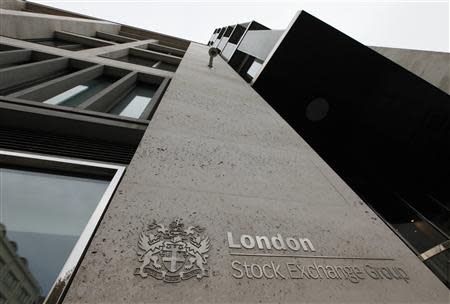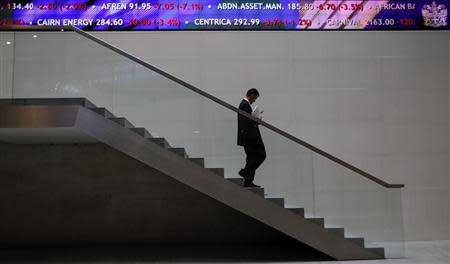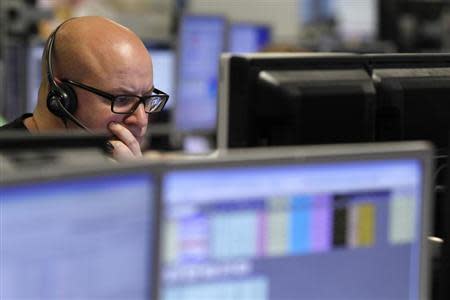Shares of supermarket firms slip as FTSE retreats
By Sudip Kar-Gupta LONDON (Reuters) - Britain's main equity index fell on Tuesday, with major supermarket groups hit by fresh signs of a loss of market share, while uncertainty over future U.S. monetary policy also weighed on the stock market. The blue-chip FTSE 100 index closed down by 0.6 percent, or 36.01 points, at 6,486.19 points, retreating after a 1.3 percent gain on Monday. Supermarket retailers joined the FTSE's loserboard after a survey by market researcher Kantar Worldpanel showed over half of Britain's households had shopped at German discount grocers Aldi or Lidl in the past 12 weeks. The data showed that the UK's "big four" supermarkets - Tesco, Sainsbury, Wal-Mart's Asda and WM Morrison - had continued to lose market share. Shares in Sainsbury fell 4.3 percent to the bottom of the FTSE 100 index while WM Morrison dropped 2.9 percent and Tesco weakened by around 2 percent. "The top supermarket firms are losing market share at the bottom end to Aldi and Lidl, and losing out at the top end to Waitrose," said Hartmann Capital trader Basil Petrides. UNCERTAINTY OVER FED TAPERING A further factor weighing on stock markets was the U.S. Federal Reserve's meeting, starting on Tuesday and ending on Wednesday, at which it may start to scale back the stimulus that has driven much of this year's global equity rally. The majority of investors and economists expect the Fed to wait until March 2014 to begin winding down its "quantitative easing" (QE) programme. But stronger-than-expected U.S. economic data, along with last week's budget deal in Washington, have led some to speculate the Fed may act this week. "People have taken some gains off the table prior to the Fed meeting," said JNF Capital trader Rick Jones. He felt the pullback was a chance to buy stocks cheaply, however, and expected equity markets to rise again in 2014 as the global economy gains momentum. Jones expected the FTSE 100 to end 2013 in the 6,700-6,900 point range, with the FTSE still up by around 10 percent since the start of 2013. (Additional reporting by Tricia Wright and Blaise Robinson; Editing by Catherine Evans)

 Yahoo Finance
Yahoo Finance 


